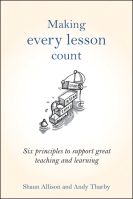 The new year is well underway at Durrington High School. Due to the local reorganisation of schools in our area, we had a double transition year. We welcomed 330 new Y7 students for the first time, alongside 330 new Y8 students at the same time – 660 new students in all! To facilitate this, over the summer a major building project was completed, comprising a new teaching block, performing arts studio, full size astropitch and sports pavilion. And of course, to complete the package – 40 new staff!
The new year is well underway at Durrington High School. Due to the local reorganisation of schools in our area, we had a double transition year. We welcomed 330 new Y7 students for the first time, alongside 330 new Y8 students at the same time – 660 new students in all! To facilitate this, over the summer a major building project was completed, comprising a new teaching block, performing arts studio, full size astropitch and sports pavilion. And of course, to complete the package – 40 new staff!
So, it’s back to our core business – great teaching in the classroom. To support our new colleagues, Andy Tharby and I led a session outlining our approach to teaching at DHS and how we should plan for this.
The quote above should underpin our teaching – if students are going to believe that they can be successful, they need to experience success. So we need to provide the opportunities for this to happen.
The Sutton Trust report, ‘What Makes Great Teaching?‘ provides a good starting point when thinking about planning learning. It identifies content knowledge and quality of instruction as key components of great teaching.
Content knowledge. Teachers with strong knowledge and understanding of their subject make a greater impact on students’ learning. It is also important for teachers to understand how students think about content and be able to identify common misconceptions on a topic.
Quality of instruction. This includes effective questioning and the use of assessment by teachers. Specific practices, like reviewing previous learning, providing model responses for students, giving adequate time for practice to embed skills securely and progressively introducing new learning (scaffolding) are also found to improve attainment.
Alongside this, the authors name the following strategies as being myths that have little impact on learning:
- lavishing low achieving students with praise;
- encouraging students to discover ideas for themselves;
- grouping by ability;
- rereading as a revision tool;
- attempting to improve motivation before teaching content;
- teaching to ‘learning style’;
- the idea that active learning helps you remember.
At Durrington, we have synthesised this, other key research and the wisdom and experience of our best teachers into 6 pedagogical principles, that should inform our planning for great teaching:
Some key points about this approach:
- This is a ‘tight but loose’ approach – whilst we believe that these principles are key to great teaching, we don’t prescribe how they should be implemented.
- Tick-lists can narrow and stifle great teaching – teaching is a creative profession. Our approach allows teachers to be creative – we don’t mind how teachers implement these principles in their classroom…just do them well!
- Great teaching is context-specific, not generic – subject areas need to think about how these principles are best implemented within their subject context.
So, it’s worth considering how each of the principles should be weaved into our planning.
CHALLENGE
 Rather than stifle expectations by setting differentiated learning objectives, have a single challenging learning objective and then think about how the individual students in your class will achieve this? What support will they need in order to work towards these objectives? They may not all get there, but they should all aspire to it.
Rather than stifle expectations by setting differentiated learning objectives, have a single challenging learning objective and then think about how the individual students in your class will achieve this? What support will they need in order to work towards these objectives? They may not all get there, but they should all aspire to it.
How will you be ‘responsive’ and help all students to work towards these objectives? Some will need focused questioning; some might require some help with starting their sentences; some will do a sloppy first attempt and have to redraft it; some will reach the objective easily and need to be challenged further. In this blog and this one too, Andy looks at how he approaches this.
 The key to this is knowing your students. What do they struggle with? What switches them off? How much and what type of support do they respond well to? This comes with knowing your classes – so make this a priority. It also helps to shift your view of students – rather than thinking about them as low ability, think of them as having a low starting point. Low ability suggests that’s what they can achieve and that’s that. Whereas seeing it as a low starting point is just that – they just need focused support to help them get up there.
The key to this is knowing your students. What do they struggle with? What switches them off? How much and what type of support do they respond well to? This comes with knowing your classes – so make this a priority. It also helps to shift your view of students – rather than thinking about them as low ability, think of them as having a low starting point. Low ability suggests that’s what they can achieve and that’s that. Whereas seeing it as a low starting point is just that – they just need focused support to help them get up there.
As your knowledge of your students grows, you can plan more effectively how best to challenge them as individuals and keep them in the ‘struggle zone’ (see above). If the work is too easy, they will be in the comfort zone and learning very little. However if it’s too hard, they will panic and switch off. This is why challenge is a long term venture. It can only be truly ‘mastered’ for each class, as you get to know the individuals within each class.
EXPLANATION
There are three important principles for teacher explanations:
- Tethered to something already known – so, plan early in your lesson, to find out what they already know and then build on this.
2. Allow for the limited capacity of the working memory – students will struggle to hold more than 5-7 bits of information in their working memory. So bear this in mind when giving instructions, asking them to sort key bits of information etc.
3.Aim to make the abstract, concrete – think about and plan, how you will make abstract ideas make sense e.g. drawing diagrams might help; demonstrations in science; sharing and discussing images etc.
MODELLING
 Modelling should be a key focus of your planning. Once you have explained the key ideas, how will you show them what to do with it? There are two key strategies to consider here:
Modelling should be a key focus of your planning. Once you have explained the key ideas, how will you show them what to do with it? There are two key strategies to consider here:
- Model the creation of products/procedures – rather than tell them how to do a piece of work e.g. write an essay, show them how to do it. Write it out on the board and discuss how/why you are doing each step as you go. Question them on what you are doing. Explain, out loud, your thought processes. If you make a mistake, point it out.
- Deconstruct expert examples and use worked examples – have an excellent finished product and share it with the students. Discuss why it was so good.
PRACTICE
 Plan in time, during the lesson and over a series of lessons, for students to practice using their new knowledge and skills. Research suggests that we have to be exposed to something at least 3 times if we are going to remember it. There are two types of practice to consider:
Plan in time, during the lesson and over a series of lessons, for students to practice using their new knowledge and skills. Research suggests that we have to be exposed to something at least 3 times if we are going to remember it. There are two types of practice to consider:
- Practice for fluency and long-term retention – repeating things in order to master them. Coming back to things in subsequent lessons is good for this.
- Deliberate practice at the outer reaches of ability – making the work hard for students so they have to struggle. This is when learning will take place.
FEEDBACK
Plan how you will give feedback during lessons – and also how you will allow students to respond this feedback, because if they don’t, it’s fairly meaningless. So for example, plan some time in the lesson, where you will look at individual student work and give them some specific feedback on their work, there and then, that they have to respond to. Plan to do this for 6 to 7 students each lesson. Alternatively, factor in some DIRT time, for students to act on your feedback – more on this here.
 Remember also that feedback is a two way process – so your planning of future lessons should be informed by how students have performed in that lesson. At the end of each lesson, it’s worth making a not of what they didn’t quite get, so that you know to plan it into future lessons.
Remember also that feedback is a two way process – so your planning of future lessons should be informed by how students have performed in that lesson. At the end of each lesson, it’s worth making a not of what they didn’t quite get, so that you know to plan it into future lessons.
QUESTIONING
Finally, questioning. Now you shouldn’t expect to plan all of your questioning for a lesson – the best teachers are responsive in their questioning, depending on how the students do in the lesson. However, there are some things that are worth considering in your planning:
1.Should check for understanding – i.e. hinge questions – hinge questions are key questions that students should be able to answer at a certain point in the lesson, before they move on. Harry Fletcher-Wood has written about this here.
2.Provoke deeper thinking – plan some really tricky questions that you will ask to really deepen their thinking.
3.Increase the ratio of participation and thinking – ‘cold calling’ e.g. rather than asking ‘John, what are they two substances required for photosynthesis?’ change it to ‘What are the two substances required for photosynthesis…….John?’ By putting the name at the end, everybody has to think about the question, as it might be them! So plan who you will direct your questions at.
If you want to find out more about implementing these six principles into your day to day teaching, take a look at our new book – ‘Making Every Lesson Count’. Each chapter focuses on one of the principles – no gimmicks, just good solid strategies that can be implemented easily. Available from Amazon here.




















Shaun – you mentioned the I think the excellent Sutton Trust’s Great Teaching Document – thought you would be interested to see what my then Year 9’s had to say about good Maths Teachers https://colleenyoung.wordpress.com/2014/11/28/good-maths-teachers/
Reblogged this on ProfLearnSVC.
Reblogged this on The Echo Chamber.
Pingback: Great Teaching | The Burgate Blog
Reblogged this on teaching knowledge and creativity.
Pingback: That was 2015… | Class Teaching
Pingback: Lesson Planning CPD | @TeacherToolkit
Pingback: CUREE and Teach First on School Improvement | Reflections on schools, teaching and education.
Pingback: Teaching Unleashed | Reflections on schools, teaching and education.
Pingback: 5 Pillars of Teaching | Reflections on schools, teaching and education.